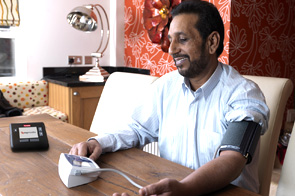Understanding Anti Social Behaviour

An antisocial personality disorder is a mental illness. Antisocial individuals are socially unacceptable to the general public. They do not have any social skills and exhibit very low self esteem, they cannot deal with changes in their social environment and are very impatient and aggressive. In extreme cases, they may be violent towards other people.
Antisocial individuals can cause major problems in the community. There are many issues such as crime, violence and poor personal relations, all of which can have a negative impact on the community. So why do so many people suffer from an antisocial personality disorder?
Studies and statistics show that over 90% of anti-social personalities are male. The sad fact is that most anti-social individuals who have been found guilty of serious crimes are male. It is often believed that most violent crime in this country is committed by men. Women on the other hand commit less violent crime than men.
Another reason why anti-social people are so prevalent is due to changes in society. The introduction of new ways of working and social interaction have caused a radical change in the way people interact. Many parents, friends and colleagues are now married and have children. In many families the children are often separated from their father during the first two years of their life.
These changes in social environment have had a significant effect on the way social interaction occurs. It used to be that when there was an anti-social child in the home, other children were more involved with them than with their father. Children are usually much more involved with their mother’s and father’s play than with a child who does not have the same social skills and is antisocial. This trend has been replaced by a new trend of child neglect where the antisocial child is neglected for longer periods than the non antisocial child.
One reason why anti-social tendencies may develop is because of a lack of social interaction. The anti-social individual is not able to cope with changes in his environment and therefore he has to find alternative methods of dealing with these changes.
Psychological studies have revealed that anti-social tendencies develop in the first three years of life. This is because of a failure to learn from parents about how to deal with changes in the world around them. The child is often neglected and is subjected to more peer pressure from other children to perform.
Psychological problems arise later in life because of poor social skills, failure to learn about social relationships and being unable to take criticism. People who suffer from anti social anxiety and depression usually tend to become isolated.
Anti-social behaviour is also caused by low self-esteem. This occurs when people feel that they are inferior and that they are not capable of achieving anything in life. This leads to low achievement in school and work.
A number of causes of anti-social behaviour can be attributed to the use of illegal substances. This includes drug abuse, alcohol and drugs, sex offenders, criminals, repeat offenders and criminals who are likely to offend again. These types of people are more likely to offend against other children and adults.
Anti-social behaviour is not a permanent problem. It is possible for a person to develop positive social skills and become a more socially mature person.
Anti-social tendencies can be treated and overcome. They can be cured through therapy, support from family and friends, good behaviour and guidance and support groups.
In most cases, anti-social tendencies can be broken down into four different levels. These include the individual’s own thoughts, behavior, feelings and actions.
Individual thoughts can be broken down into two types – internal and external. Internal thoughts can be dealt with through therapy and support groups, while external thoughts can be dealt with through intervention and treatment.
Behavior can be broken down into three types – personal, emotional and physical. These include the individual’s thoughts and feelings that lead to anti-social behaviour and then the physical reactions to these thoughts and feelings.

